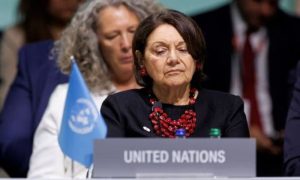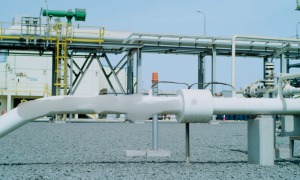The Federal Budget 2024-25, with an outlay of Rs18.9 trillion and an expected economic growth of 3.6%, is a significant fiscal strategy designed to guide Pakistan through complex economic landscapes, both globally and domestically. In the face of the ongoing inflation and increasing debt, the budget aims not only at stabilizing macroeconomic conditions but also to stimulating sustainable growth. These dual objectives underscore the government’s commitment to managing inflationary pressures through targeted fiscal measures, while ensuring that economic policies foster inclusive development. By addressing these challenges comprehensively, the budget seeks to create a more stable economic environment conducive to long-term prosperity and equitable growth across Pakistan.
The International Monetary Fund (IMF) plays a major role in Pakistan’s Federal Budget 2024-25, primarily through its influence on fiscal policy and economic reforms. As Pakistan continues to navigate its economic challenges, including high inflation and a substantial public debt burden, the IMF’s involvement provides financial support and technical expertise.
The budget incorporates several IMF-recommended measures aimed at enhancing fiscal discipline, such as improving tax collection, rationalizing expenditures, and implementing structural reforms to boost economic efficiency.
The IMF’s guidance is instrumental in shaping policies that promote macroeconomic stability and sustainable growth, ensuring that Pakistan adheres to the international best practices in economic management. Additionally, the IMF’s oversight helps maintain investor confidence, which is vital for attracting foreign investment and accessing international capital markets.
By aligning its fiscal strategies with the IMF’s recommendations, Pakistan aims at strengthening its economic foundation, improve governance, and develop an environment conducive to long-term prosperity and resilience against global economic uncertainties.
The budget lays out a detailed plan to increase revenue generation through a mix of tax and non-tax avenues. It emphasizes broadening the tax base and enhancing tax administration as core strategies. This involves implementing stricter measures to ensure tax compliance, revising tax brackets to optimize collection, and reducing exemptions that might otherwise limit revenue growth. In parallel, non-tax revenue sources like proceeds from privatization, dividends from state-owned enterprises, and regulatory fees will also contribute significantly to bolstering the government’s revenue streams. These combined efforts are aimed at strengthening fiscal sustainability and supporting ongoing economic development initiatives across the country.
Expenditure allocations are heavily focused on sectors critical for sustainable development and social welfare. A considerable portion of the budget is dedicated to education, healthcare, and infrastructure development, highlighting the government’s emphasis on investing in human capital and improving public services.
Despite these priorities, defense spending retains a significant allocation to safeguard national security in the face of regional challenges. Additionally, funds are directed towards public safety and governance initiatives, aimed at enhancing institutional capacity and ensuring effective administration across various sectors of the economy.
These expenditure priorities underscore a balanced approach aimed at promoting economic growth, supporting social welfare, and maintaining national security, thereby fostering long-term stability and prosperity for Pakistan.
Addressing the concerns surrounding escalating public debt is a priority, with a focus on prudent debt management strategies. The budget outlines several measures to tackle this issue, including refinancing existing debts, renegotiating terms with creditors to secure more favorable conditions, and exploring opportunities for concessional financing. These steps are intended to alleviate the burden of debt servicing and ensure more sustainable fiscal practices.
Furthermore, fiscal consolidation efforts are emphasized through rationalizing expenditures, optimizing public investments, and enhancing transparency in financial management. These initiatives are crucial for restoring fiscal sustainability and improving overall economic resilience. By implementing these measures, the government aims to strengthen its fiscal position, enhance investor confidence, and pave the way for sustainable economic growth in Pakistan.
The sector-specific reforms are introduced to stimulate economic growth and enhance competitiveness across various industries. In agriculture, the focus is on incentivizing modernization, improving irrigation infrastructure, and promoting crop diversification. These measures are designed to increase productivity, support rural livelihoods, and strengthen the agricultural sector’s contribution to the economy.
For industries, the budget proposes tariff rationalization, export promotion schemes, and measures to facilitate investments. These initiatives aim to stimulate manufacturing activities, boost exports, and enhance overall economic resilience. By fostering a more competitive business environment, the government seeks to position Pakistan more robustly in the global marketplace, thereby encouraging sustainable economic growth and development.
Addressing socioeconomic disparities is a key focus, particularly considering global economic shocks and local challenges. The budget prioritizes social safety nets and poverty alleviation programs to mitigate these disparities. Initiatives such as targeted cash transfers, vocational training programs, and healthcare subsidies are aimed at uplifting marginalized communities and ensuring equitable access to essential services. These efforts are crucial for promoting social cohesion and enhancing resilience against economic vulnerabilities.
Furthermore, the budget aligns fiscal measures with monetary policy objectives to achieve price stability and sustainable economic growth. Close coordination with the central bank is emphasized to manage inflationary pressures, maintain exchange rate stability, and support private sector investment. Projections for GDP growth, inflation rates, and sectoral contributions serve as benchmarks for monitoring economic performance and adjusting policy responses as necessary.
Overall, these integrated fiscal and monetary strategies are designed to foster a more stable and inclusive economic environment in Pakistan, ensuring that economic growth benefits all segments of society and strengthens the country’s resilience in the face of global and domestic challenges.
Navigating global economic uncertainties and accessing development financing are key priorities. The budget emphasizes the importance of international cooperation and strategic partnerships to achieve these goals. Pakistan aims to leverage bilateral and multilateral engagements to secure investment, technical assistance, and opportunities for market access. These efforts are crucial for enhancing economic resilience, diversifying external funding sources, and accessing the expertise needed to address developmental challenges effectively.
By strengthening international relationships and partnerships, Pakistan seeks to broaden its economic opportunities and mitigate risks associated with global economic fluctuations. This strategic approach not only facilitates the flow of investment and technical know-how but also reinforces the country’s position in the global economic landscape. Ultimately, these efforts are intended to support sustainable economic growth and development in Pakistan while enhancing its capacity to navigate uncertainties in the global economy.
The Federal Budget 2024-25 marks a major effort to revive Pakistan’s economy with strategic fiscal policies focused on sustainable development, social equity, and economic resilience. Emphasizing revenue mobilization and prudent expenditure management, the budget aims to address current challenges while leveraging opportunities for inclusive growth and long-term prosperity.
Key to this strategy are sectoral reforms aimed at enhancing efficiency and competitiveness across various industries. These reforms are intended to stimulate economic activity, create employment opportunities, and boost overall productivity.
Effective governance and stakeholder engagement are emphasized as essential for realizing the budget’s objectives. By ensuring transparent and accountable management of resources, the government aims to build trust and confidence among stakeholders, including citizens, investors, and international partners.
As implementation progresses, the budget seeks to strengthen Pakistan’s economic foundation and position the country for sustained growth amidst global uncertainties. By developing an environment conducive to innovation and investment, the government aims at driving economic diversification and build resilience against external shocks, ultimately advancing Pakistan’s economic agenda towards greater prosperity.























